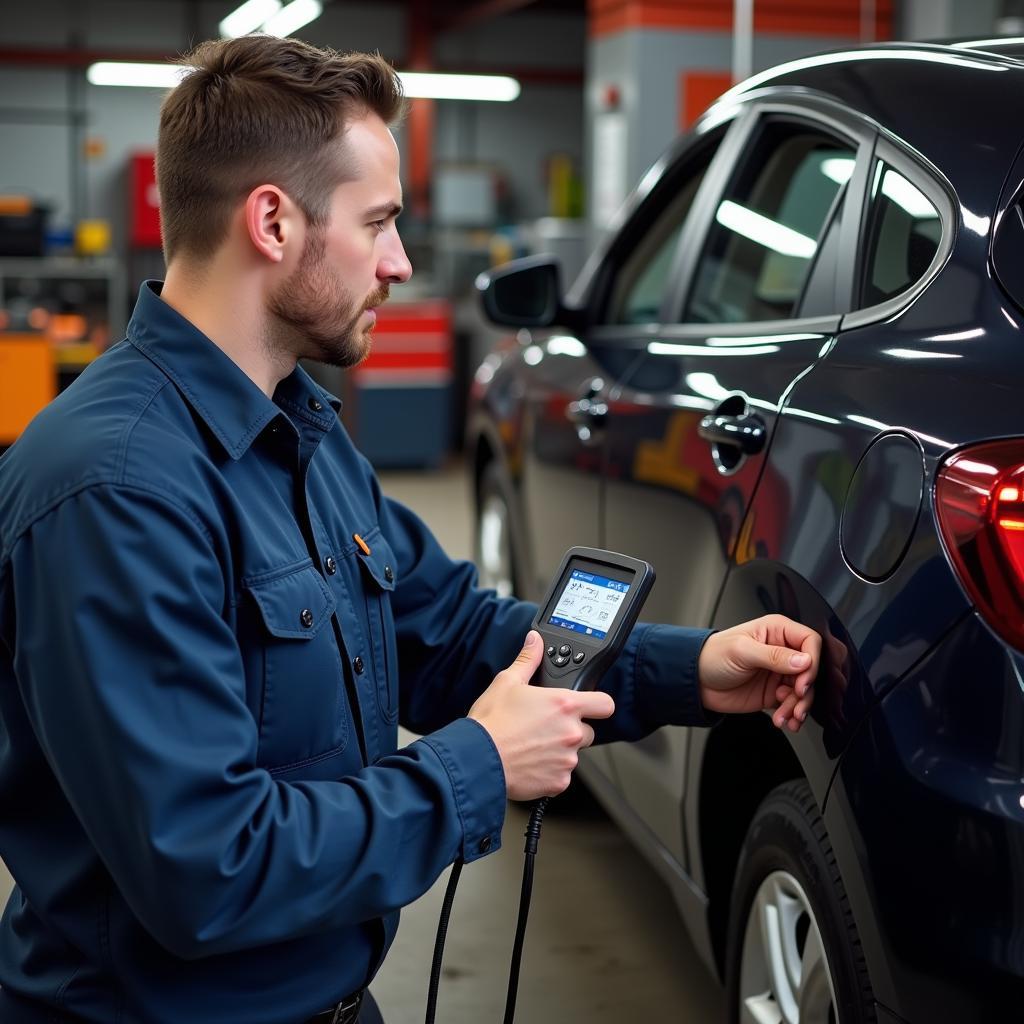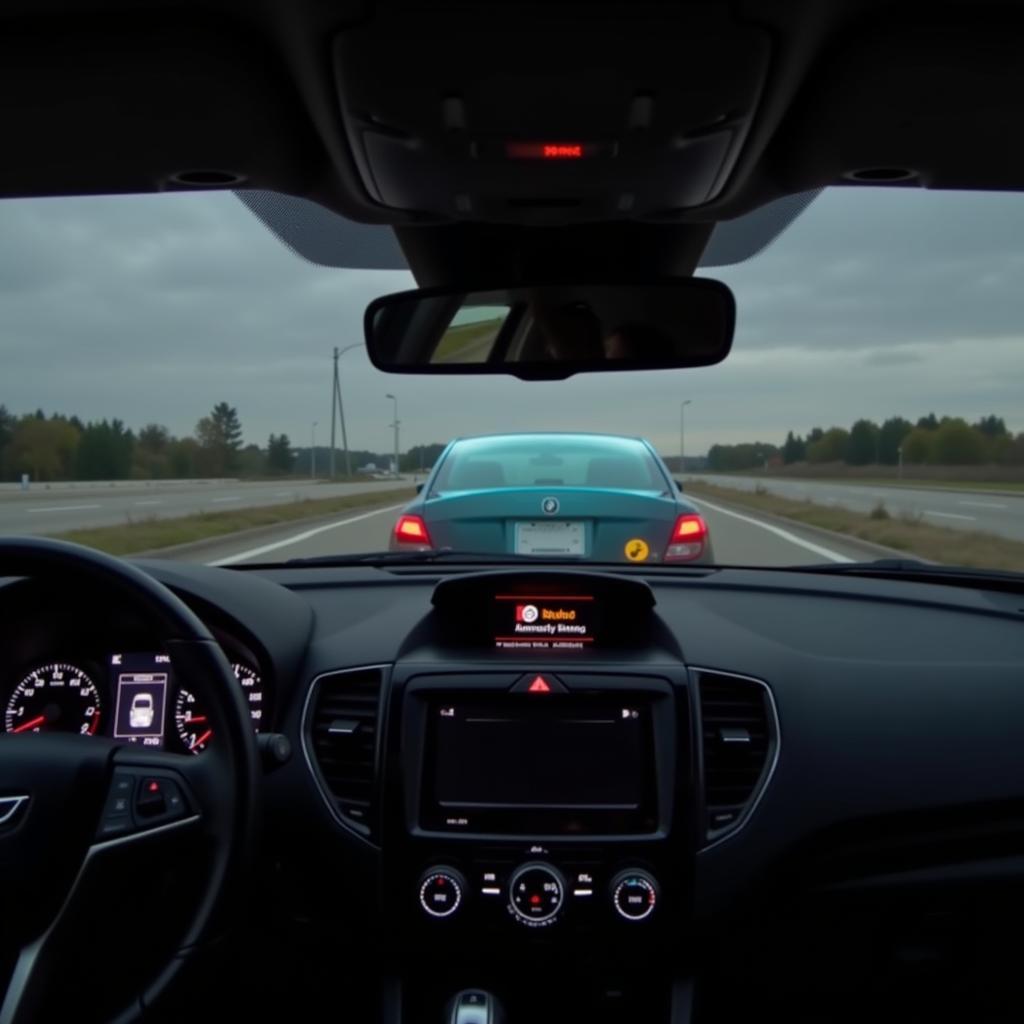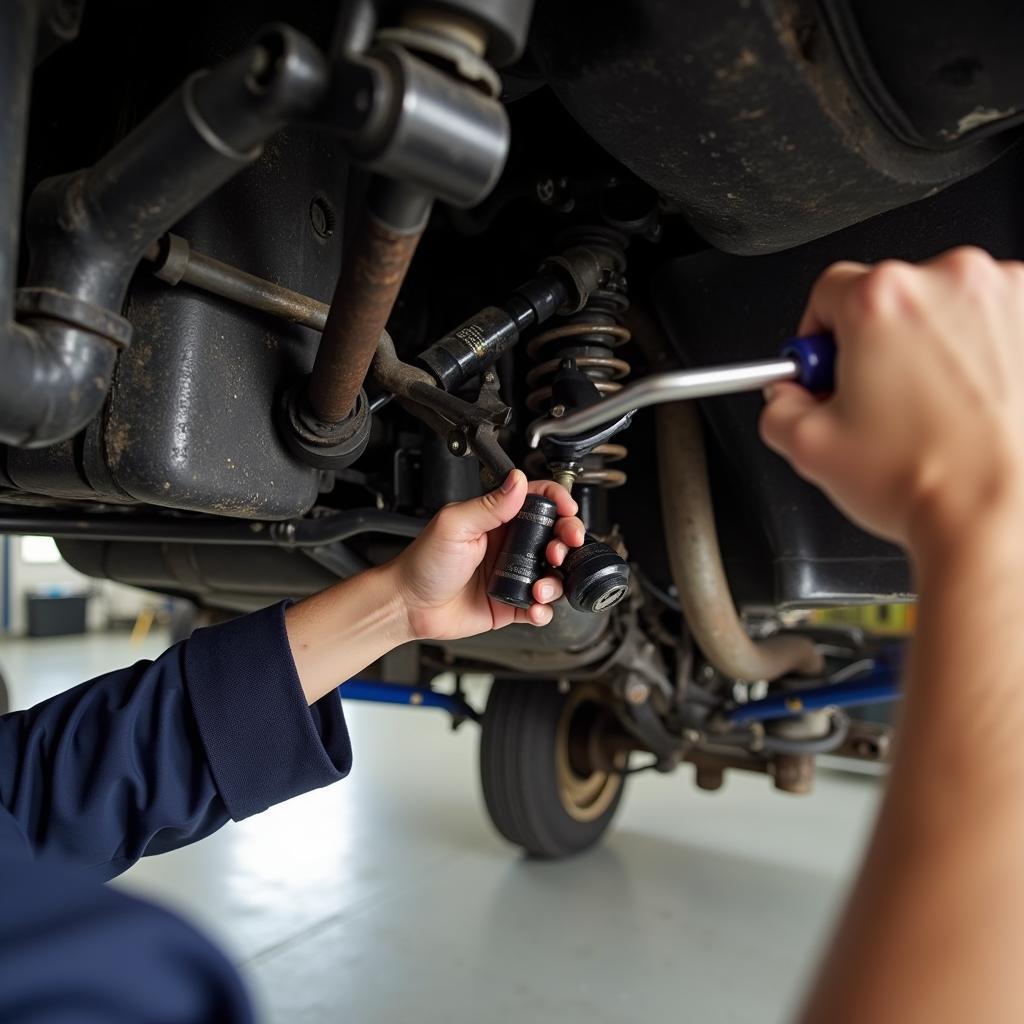Finding a parking spot can be a real headache, especially in crowded urban areas. But parking problems extend beyond just finding a space. From faulty parking sensors to electric parking brake issues, this guide offers a comprehensive Car Parking Problem Solution for car owners, mechanics, and technicians.
Navigating tight parking spaces can be a challenge, but understanding your vehicle’s dimensions and utilizing available technology can make a big difference. Modern cars often come equipped with parking assist systems, including rearview cameras and parking sensors, which can significantly simplify the parking process. For those who struggle with parallel parking, some vehicles even offer automatic parking features. Let’s explore various car parking challenges and their solutions.
Common Car Parking Problems and Their Solutions
Parking problems can range from minor inconveniences to significant mechanical issues. Understanding these problems and their solutions can save you time, money, and frustration.
Faulty Parking Sensors
Parking sensors are invaluable tools for avoiding collisions while parking. However, they can malfunction due to dirt, debris, or even extreme weather conditions. Cleaning the sensors regularly with a soft cloth can often resolve the issue. If the problem persists, a professional diagnosis might be necessary.
What if your parking sensors are beeping constantly even when there’s nothing there? This could indicate a faulty sensor or wiring issue, requiring professional attention.
Electric parking brake problem car won t start.
Electric Parking Brake Malfunctions
Electric parking brakes, while convenient, can sometimes malfunction, preventing the car from moving. This can be caused by a low battery, a faulty switch, or issues with the braking system itself. Trying to force the car to move can exacerbate the problem. Consulting a qualified mechanic is recommended.
What are the signs of a failing electric parking brake? Common indicators include warning lights on the dashboard, difficulty engaging or disengaging the brake, and unusual noises coming from the braking system.
 Diagnosing a Faulty Parking Sensor
Diagnosing a Faulty Parking Sensor
Difficulty Maneuvering in Tight Spaces
Maneuvering in tight parking spaces can be challenging, even for experienced drivers. Practicing parking maneuvers in a safe, open area can improve your skills. Utilizing parking aids like mirrors and cameras can also significantly reduce the risk of collisions.
What’s the best way to practice parking in tight spaces? Setting up cones or markers in an empty parking lot can simulate real-world scenarios and allow you to hone your parking skills without the pressure of other vehicles.
Automatic car parking system problems.
Automatic Parking System Issues
Automatic parking systems, while incredibly helpful, are not without their own set of potential problems. These systems rely on sensors and software that can sometimes malfunction due to software glitches, sensor errors, or even environmental factors.
What should you do if your automatic parking system fails? First, try restarting the system. If the issue persists, consult your vehicle’s manual or contact a qualified technician.
 Troubleshooting an Automatic Parking System Malfunction
Troubleshooting an Automatic Parking System Malfunction
Advanced Car Parking Problem Solutions
Sometimes, car parking problems extend beyond common issues. Let’s delve into some more advanced challenges and their solutions.
Steering System Problems
A malfunctioning steering system can make parking incredibly difficult and even dangerous. If you experience difficulty turning the steering wheel or notice unusual noises, it’s crucial to have your steering system inspected by a professional immediately.
“Ignoring steering problems can lead to serious safety risks,” warns John Smith, a certified automotive technician with over 20 years of experience. “Regular maintenance and prompt attention to any steering issues are essential for safe driving.”
 Inspecting a Car’s Steering System
Inspecting a Car’s Steering System
Brake Issues and Parking
Brake problems can significantly impact your ability to park safely. Whether it’s squeaking brakes, a soft brake pedal, or a pulling sensation when braking, these issues should be addressed immediately to ensure safe and effective parking.
What are the most common signs of brake problems? Common signs include squeaking or grinding noises, a vibrating brake pedal, and increased stopping distance.
Problems starting diesel car in cold weather.
Understanding Parking Regulations
Understanding local parking regulations is crucial for avoiding fines and other penalties. Be sure to check for signs indicating time limits, permit requirements, and any other restrictions.
“Knowing the parking rules can save you a lot of hassle,” advises Emily Davis, a seasoned parking enforcement officer. “Pay attention to signage and always park within designated areas.”
Most common car breakdown problems.
Problems with automatic transmission cars in india.
Conclusion
Addressing car parking problems efficiently requires a combination of preventative maintenance, proper driving techniques, and a good understanding of your vehicle’s features. From faulty sensors to complex mechanical issues, this guide has provided solutions to a variety of parking challenges. Remember, regular maintenance and prompt attention to any issues can save you time, money, and frustration in the long run. For further assistance and expert advice, connect with us at AutoTipPro. Call us at +1 (641) 206-8880 or visit our office at 500 N St Mary’s St, San Antonio, TX 78205, United States.
FAQ
- What should I do if my parking sensors are constantly beeping?
- How can I improve my parallel parking skills?
- What are the common causes of electric parking brake malfunctions?
- Why is my automatic parking system not working?
- How can I troubleshoot problems with my car’s steering system?
- What are the signs of brake problems that can affect parking?
- Where can I find information about local parking regulations?





Leave a Reply